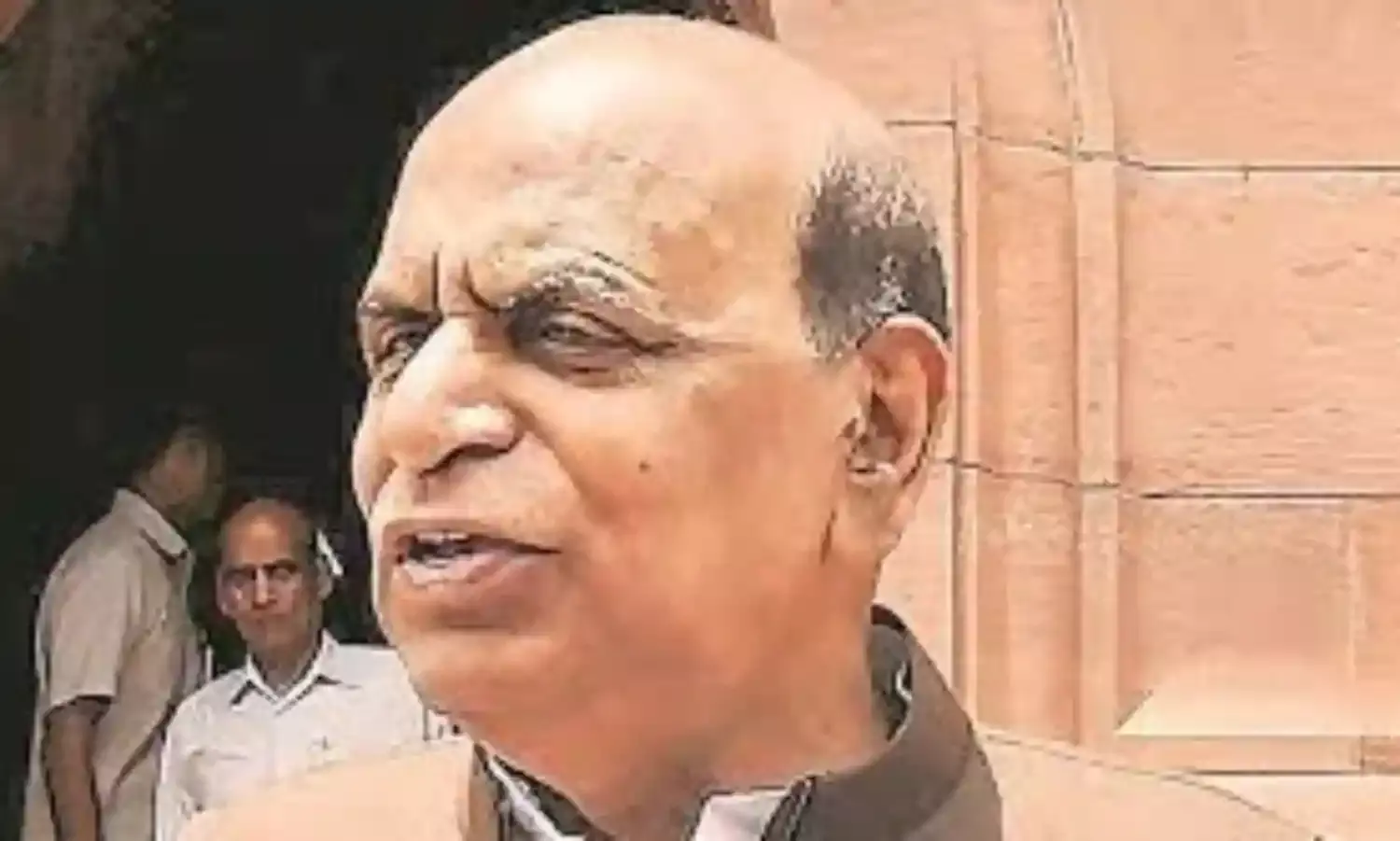DPT - A Man Who Touched Many a Heart!
Devi Prasad Tripathi Rest in Peace;

These lines from Allama Iqbal express what Devi Prasad Tripathi means today to all his friends and admirers.
Marney waley marte hain lekin fana hotey nahin
Woh haqeeqat mein kabhi humse juda hotey nahin
Marne salon ki jabeen raushan hai iss zulmaat mein
Jis tarah tarey chamaktey hain andheri raat mein
The man was known to the world as DPT. He was universally loved, he never gave up, he never said no. Symbol of hope, where will we find another one like him?
It was to Dharamvir, former Professor of Russian at JNU, to whom I owe my friendship with DPT. Vir calls me ‘Syeda Apa’, and that was what I became for DPT. He was part of all our activities as we were part of his. Equally conversant with Sanskrit and Urdu, he amazed me by quoting with equal flair both Kalidas, Ghalib and Bahadurshah Zafar in speeches inside and outside parliament.
One of the first big events of which I was a small part was the Jashn e Faiz he organised in Vigyan Bhawan. Poets from all over the world were pulled into this Jashn due to the subject but also due to its irrepressible organiser. That was the beginning of a friendship that began in the 1980’s. It was built around our common interests; poetry, politics, language, but most of all resistance. His student days at JNU and prison days during emergency were formidable teachers.
When some of us decided to form a Trust in the memory of Khwaja Ahmed Abbas, film maker, journalist, novelist and playwright, it was done under the guidance of Aziz Qureshi former governor of Uttrakhand. The two people who gave shape to this Trust were DPT and Dharamvir. They were in Bombay presiding over the Amitabh Bachchan launch of the book on Abbas, Bread Beauty Revolution written by film maker Iffat Fatima and me.
The glittering Star Guilds Award Function at Vallabhai Stadium in Mumbai when Amitabh Bachchan dedicated a special cameo to Abbas, who gave him the first break in Saat Hindustani, was brainchild of DPT and Dharamvir. Few years later when the Trust presented a play based on Abbas’s story Inder ki Talwar, about exploitation of Dalits, he was there to welcome the audience and speak about caste and class.
Think India was another connection. The journal was DPT’s brainchild and lifeline. Each journal was thematic. The last one I wrote in was on Urdu Poetry. When he wanted something he spoke five simple words “Ye to aapko karna hai” His manner of inviting one to his literary or political gatherings was standard. ‘Note the date. Aana hee hai’. His home on Ferozshah Road was the markaz of activities. Writers, actors, political refugees- it was their refuge.
Pakistani poet Fehmida Riaz recited her poem (which later became viral) for the first time in his house. ‘Tum bilkul hum jaisey nikley/ ab tak kahan chhupey thhe bhai’.
Salima Hashmi, Faiz Sahib’s daughter and Professor of art at Beaconhouse University in Lahore, was often invited to India. In the last few years when the visa regime became insurmountable, it was only through DPT’s offices that her visa was stamped. For her and her sister Muniza, DPT was family especially since his book Celebrating Faiz. The relationship extended to the younger generation, Ali Madeeeh Hashmi, Adeel Hashmi and Mira Hashmi. Had he been able to express himself in his last moments, his remarks in the Kanpur IIT controversy on Fauz Sahib’s poem Hum Dekhenge would have been acerbic.
For DPT, borders were irrelevant between countries and generations. Nepal was close as his jugular vein and Pakistan was a part of his existence.
In the last few months I could not see him. Every time I phoned he would say, wait a few days, let me come back from treatment. He was being treated at the Asian Institute for Medical Sciences at Faridabad. I met him at the Party office at Ravi Shankar Shukla Lane where we planed an international seminar on Abbas with partnership of Vichar Nyas and Raza Foundation.
I cherish one special moment of him at a gathering in memory of the great industrialist Suresh Neotia, lover of music and Urdu. It was held by his nephew and literary heir Harshvardhan Neotia. Unlike the characteristic DPT joie d’ vivre he sat quietly in a corner with Vir. People who spotted him thronged to meet him. His spirit was there but the pluck was missing.
The last spark I saw was when he spoke about Maharashtra state elections and Sharad Pawar’s remarkable statesmanship. I fervently hoped this victory would bring him back to his old vibrant self. His party was in power the world was again at his feet. It was wishful thinking; I had forgotten the lines of the poet Behzad Lakhnavi about the flame burning brightest before dying.
Ai shama qasam parvane ki,
Itna to karam hum par karna
Us waqt bhadak kar gul hona
Jab rang pe mehfil aa jaaye

